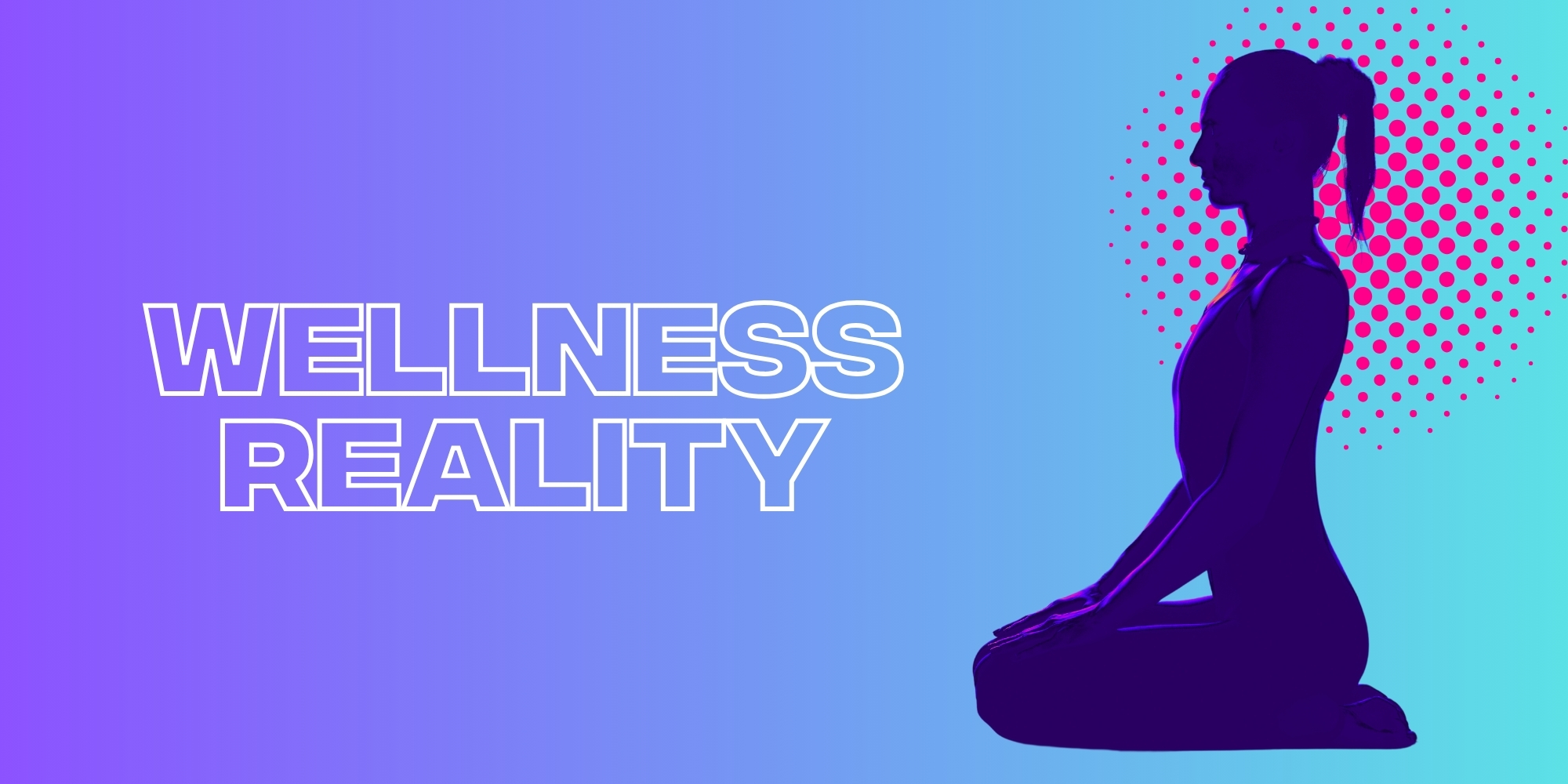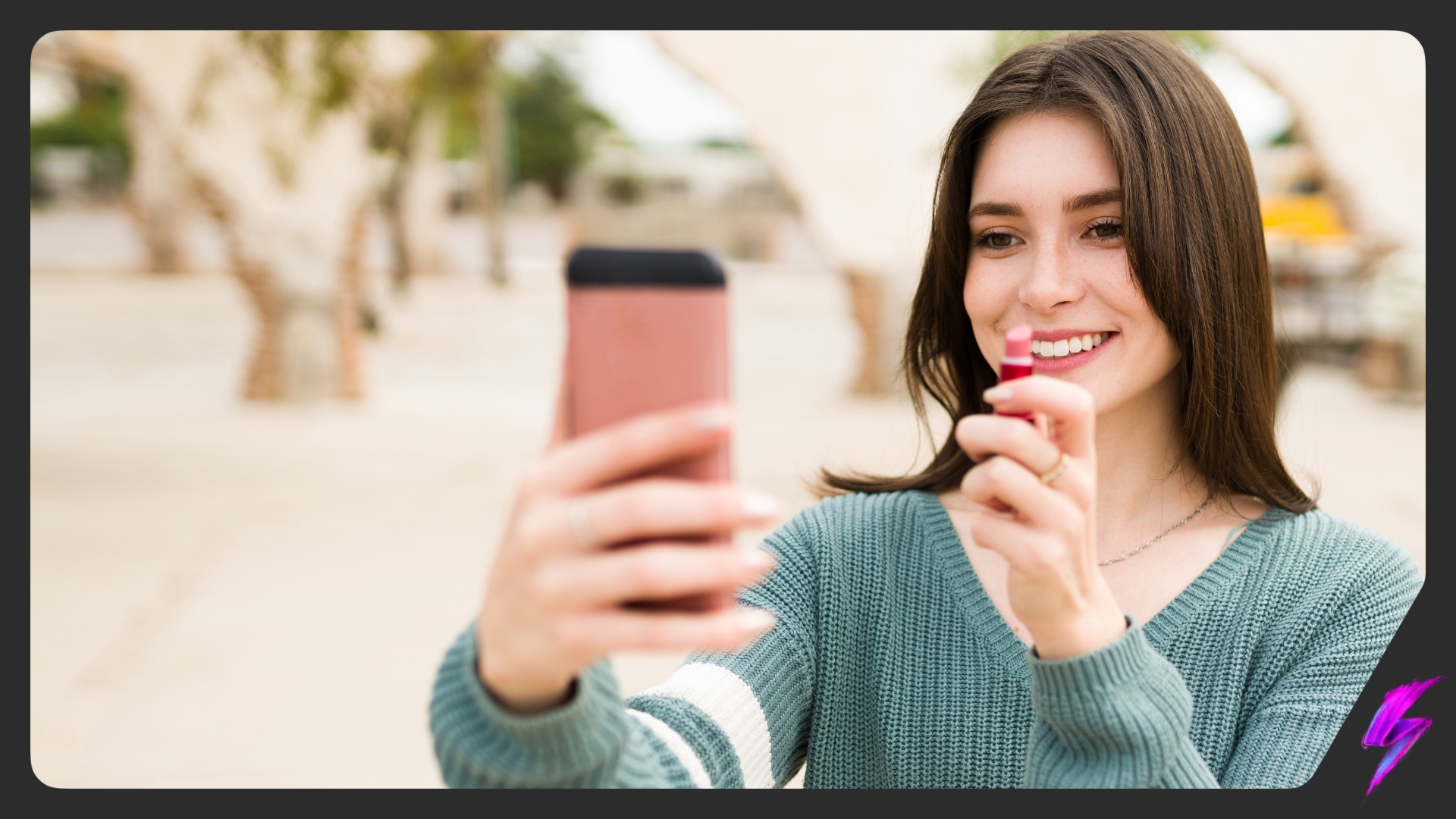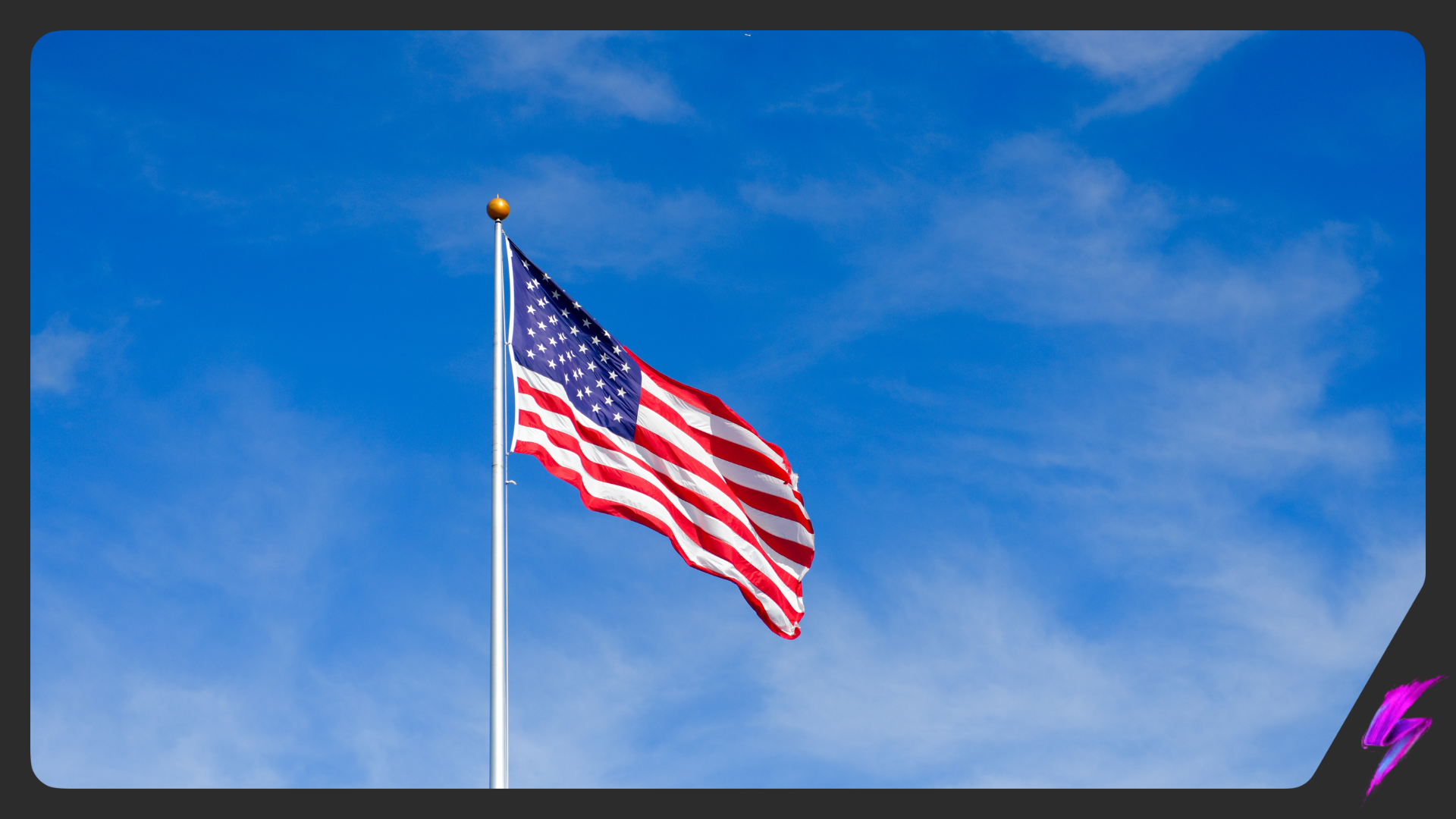Is The Wellness Industry Only Making Us More Sick?
May 15, 2024
Social Trends

It’s easy to forget just how ‘new’ wellness culture really is, particularly for younger generations who spend a lot of their spare time on social media. For these people, the concept of ‘wellness’ is so integrated into their everyday lives that seeing countless emails flooding their inbox claiming that they need to “eat a spoonful of seamoss” every morning to be skinny or “buy this hydrogen water bottle so you can better experience the benefits of the H in H20”, is approached with little to no questioning.
For those who perhaps aren’t subject to such outrageous offers, wellness culture defines the ongoing pursuit of self-improvement through activities like Pilates, taking unconventional supplements and striving for clearer skin, shinier hair, mental clarity etc. Pursuing these traits under the guise of wellness is often perceived as the key to unlocking a life free from anxiety and insecurities.
But with everyone’s needs, privileges, and desires being so different, is wellness culture’s one-size-fits-all approach truly effective?
With wellness industry growth reaching $1.8 trillion in 2024, it prompts us to think about the true intentions behind the wellness industry trends and wellness brands that dominate this space. Is it just a money-making ploy? Or do these powerhouses truly care about helping others step into the best version of themselves?
@nourishkindly wellness culture is diet culture rebranded! we are smarter and better than this 😭 #wellness #nutrition #colostrum #dietculture #meexplaining
In honour of Mental Health Awareness Month, we’ll explore the rise of wellness culture and what non-negotiables brands must adopt if they are to make a difference in this industry.
THE CURRENT STATE OF WELLNESS CULTURE
Post-pandemic, the wellness industry is booming. Consumers intend to keep spending more on products that improve their health, fitness, nutrition, appearance, sleep, and mindfulness, keeping wellness brands that specialise in these areas successfully afloat.
The general consensus among those tapped into wellness culture, is that the light at the end of the wellness tunnel is a happy, glowing version of you, able to navigate life’s obstacles with ease, all while balancing on one foot (thanks to all the Pilates and yoga you do, obviously). To get here, people often tap into the following wellness trends:
Health at home
At-home testing kits for COVID-19 have prompted a surge in health at home, with the likes of at-home vitamin and mineral deficiency, food intolerance, and cholesterol testing gaining popularity. These kits are appealing due to their convenience, quick results, and ability to test frequently. All difficult aspects to navigate if going through your GP.
While 35% of Chinese consumers have happily replaced some in-person healthcare appointments with at-home diagnostic tests, others in the US and UK have expressed hesitancy due to the preference to see a doctor in person, a lack of need, and price.
@thewellnesspharm If your labs are normal but you still feel like something is off with your body, then at home Micronutrient testing could help you out! I used the one by Healthyr. This tells you what your levels of Magnesium, Calcium, Vitamin D, Vitamin B12, Ferritin, and Folate (Vitamin B9) are. If you are deficient, you can use diet or supplements to raise these to optimal levels and feel like yourself again. #micronutrienttesting #nutrientdeficiency #magnesiumdeficiency #healthyr
For the brands looking to tap into wellness culture via at-home health, they’ll need to determine the right price since cost still presents a major barrier for a lot of curious consumers, as well as creating consumer feedback loops, and making more of an effort to help customers properly understand their test results – either through the use of generative AI or telehealth services.
Biomonitoring and wearables
While the Apple Watch, Fitbit, and other wearable devices have been popular for some time now, the wellness industry has ushered in a new era for biomonitoring through them. Modern wearable technology is now equipped with sensors that provide consumers with insights into the likes of sleep quality, heart rate, step count, glucose monitors, and a whole host of other indicators to help better understand one’s health.
Roughly one third of surveyed wearable users said they use their devices more often than last year and more than 75% indicated an openness to using one in the future. This suggests that the use of wearable devices will only continue to permanently integrate itself into wellness culture going forward.
@hailiedeegan ad with 40+ different exercise modes, cross training and tracking my results is easy with my @Fitbit Charge 6 FitbitByGoogle
For the brands looking to infiltrate this market, they should consider tapping into the spaces where tracking isn’t often available, like nutrition, mindfulness, and weight management. It’s also important for businesses to keep data privacy and clarity of insights top of mind, seeing as 30% of China, UK, and US consumers are open to using a wearable device only if the data is shared exclusively with them.
Personalised products and services
One in three millennials prefer personalised products and services, due to the general encouragement for people to be more selective about what they want to use. 20% of UK and US consumers look for personalised products that use biometric data to provide recommendations. For example, skincare brand Skin + Me uses facial recognition systems to perform online consultations for those looking to purchase personalised, problem-targeting skincare products. This biometric data is then paired with generative AI for greater precision and customisation.
@natashahmedx i’ve fallen so badly off my skincare routine so new year new skin routine! the @Skin + Me Daily Doser has all the ingredients formulated with my skin in mind so it makes routine so much easier. My code NATASHA and you can get your first Daily Doser for £4.99, and a free trial of their other products #skinandme ad
Brands looking to tap into wellness culture via personalisation should consider exploring partnerships with gen AI companies.
Clinical over clean
Wellness products that fall within the supplement, skincare, haircare, beauty, and vitamin spaces are moving away from natural ingredients, towards clinically-proven ingredients. Half of UK and US consumers reported clinical effectiveness as a top purchasing factor, while only 20% reported the same for natural/clean ingredients.
In order to meet the rising demand for clinically-proven ingredients, brands will need to start emphasising existing products in their catalogue, while others may have to rethink formulas. For those who’ve built a brand around clean/natural products, they may consider seeking third-party certifications to help prove claims and reach a wider audience.
WHERE DOES WELLNESS CULTURE FALL FLAT?
While wellness culture sets out to champion self-improvement, self-love, and introspection, the intensity of some of the marketing strategies and campaigns we’re faced with inadvertently promotes perfectionism, something that’s unattainable no matter who you are. Whether this perfectionism stems from social pressure or is directed out at others, it’s less about being perfect and more about high standards and punishing yourself to achieve them. The failure to live up to these unrealistic standards then leads to feelings of self-criticism and self-blame, which would have otherwise been avoided.
@malloryjpage Wellness culture is just diet culture repackaged with a coquette like bow
Alongside this, the tone-deaf push to get everyone believing that their worries will fade away with a 1-hour session of yoga, or that their acne will clear after a few uses of a skincare product with salicylic acid in it, assumes that everyone is on a level playing field when it comes to accessibility, finances, mental health, physical health, ability etc.
Wellness culture relies heavily on the expectation that everyone is financially, habitually, mentally, and physically privileged. Those who don’t fall into these categories (which is most of us) then struggle with feelings of shame for not being able to live up to the expectations tailored to a very small group of people. Essentially, the concept of wellness has become synonymous with white, rich, already-healthy people telling others they can manifest a better life if they just do certain things.
Though we have a level of personal responsibility to filter out the parts of wellness culture that don’t align with us, it’s hard not to be seduced by the glossy imagery and word of wellness influencers, who are often untrained and unregulated (unfortunately killer abs and a nice house by the beach doesn’t make them legitimate). After all, just like all other industries, the wellness industry is out to make money, and will gather any influencer testimonial and release any placebo-driven products that it needs in order to do that.
@lutinii A reminder not to believe everything you see on the internet in any and every case. Just because someone has a large following does not make them equipped to give advice to on anything. No one body is the same and there is no one size fits all!!!! Be careful out there #chronicillness #storytime #healthandwellness
♬ Monkeys Spinning Monkeys – Kevin MacLeod & Kevin The Monkey
Oftentimes the strategies and campaigns run by the wellness brands motivated by sales lean into toxic positivity, or the ‘good vibes only’ approach. This is the mistaken idea that you should stay positive no matter how difficult the circumstances. Not only is this impossible, but also doesn’t allow space and time to process and learn from challenging experiences, which is key for psychological development.
HOW TO MAKE WELLNESS WORK FOR YOU
Despite its downsides, tapping into wellness culture can still present new ways to learn self-improvement, but knowing which options are available to you outside of the norm is key. Maybe a better standpoint would be to look at wellness from a self-acceptance perspective. Instead of punishing yourself for not achieving unrealistic goals, hone in on improving the cards you’ve been dealt.
Once you’ve identified these best practices, it’s important to look ahead without putting too much pressure on yourself or faith in that practice if you’re looking to succeed and make long-lasting change. Consider dipping your toe in at first to test the waters before fully committing.
Practising self-care and prioritising your mental and physical wellbeing is the ultimate goal, but finding ways to do this that best suit you and your needs is the real aim. The brands tapping into this freedom of choice and acceptance that wellness looks different to each individual are those who will succeed in such a rapidly-changing industry.
Our influencer marketing agency and social agency are located worldwide, with our agency network based in the USA, UK, UAE and China.
If you want to find industry insights, visit our influencer marketing and social media blogs.
@sociallypowerful
Social And Influencer Marketing News + Insights
Get in touch
We'll show you how to start powerful conversation, drive social engagement, build your brand, hit sales targets or meet other goals you have, wherever you are in the world.
Work with us





